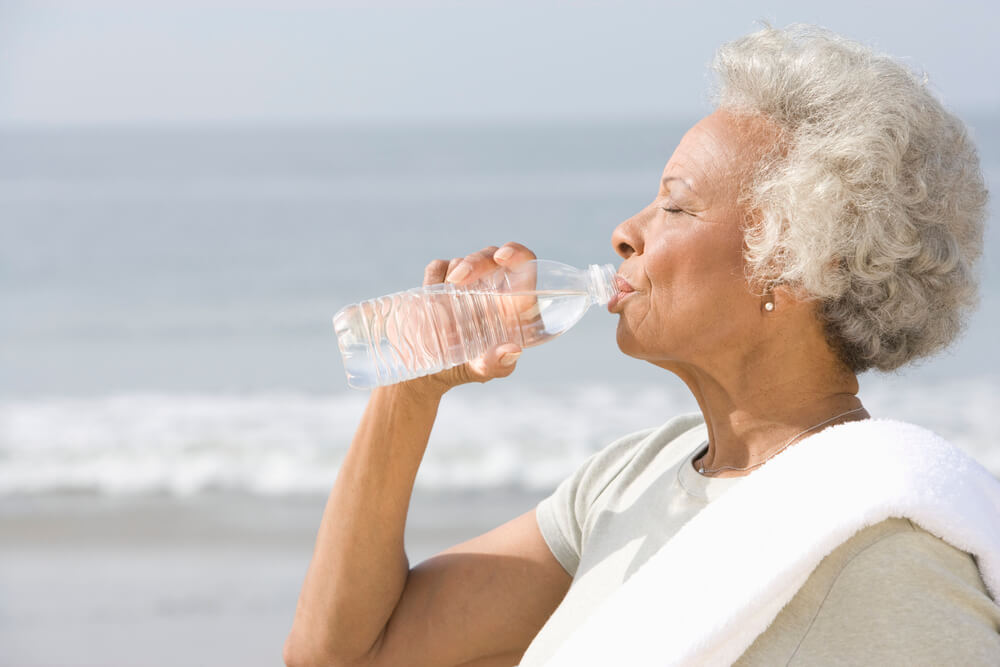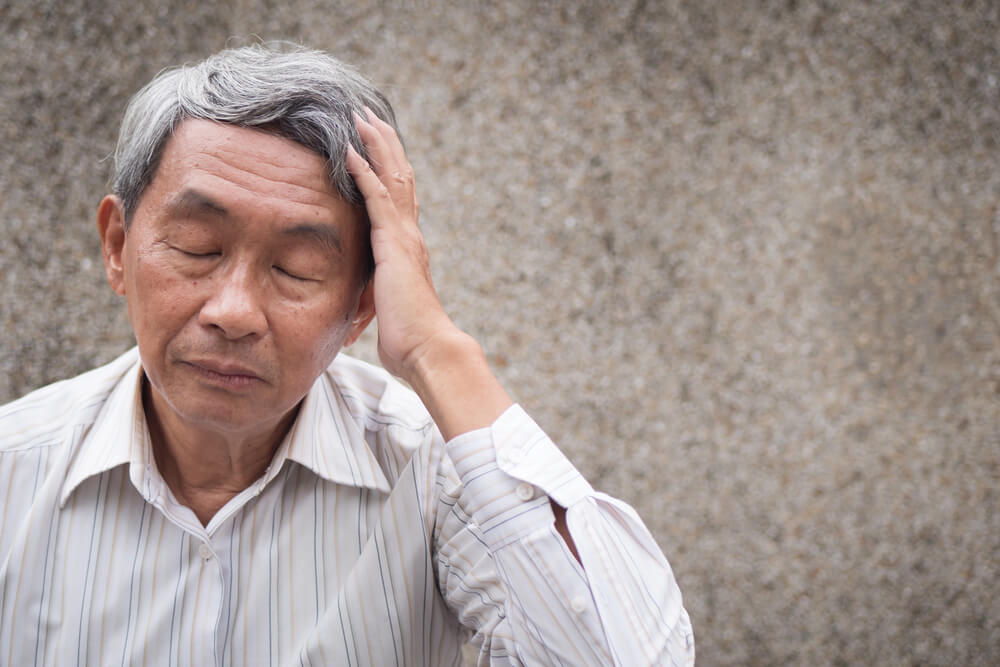There is a long-standing suggestion to drink about eight glasses of water each day. However, there is little scientific evidence to support that claim. So, how much water should seniors drink to stay healthy and hydrated? Keep reading to find out.
How Much Water Seniors Should Drink To Stay Hydrated

There are many different recommendations for how much water senior citizens should drink per day to stay hydrated. The National Academy of Medicine recommends that men over age 51 drink 13 cups of water daily, and women in the same age range should aim for 9 cups. However, these amounts include all forms of fluid.
Others suggest that an amount of water equal to one-third of your body weight is a good idea. This translates into a person weighing 180 pounds drinking about 60 ounces of water. However, a smaller adult weighing only 100 pounds might not get enough fluids to stay hydrated with this guideline.
Personalized recommendations on how much water a senior citizen should drink per day must account for health conditions or dietary restrictions. That is why it is a good idea to speak with your healthcare provider about how much water you need to stay hydrated.
Why Proper Hydration Is Important
The human body is more than half water. It is an integral part of every cell and plays an important role in virtually every bodily function. It should come as no surprise that maintaining hydration levels is important for multiple body systems. Consider the following impacts of dehydration:
- Cognitive Ability: Dehydration can cause brain fog and confusion that mimics cognitive dysfunction. A 2017 report details that as little as 2-3% of body fluid loss can cause cognitive impairment.
- Headaches: headaches and dizziness are common side effects of dehydration. Worse, they may lead to falls, which are a leading cause of hospitalizations for adults over 65.
- Heart Health: Electrolyte imbalances resulting from a lack of sufficient fluid can affect the heart. The National Institute of Health reports that proper hydration may help reduce the risks of heart failure in older adults.
- Kidney Function: The kidneys regulate fluid levels in the body. When you are dehydrated, the kidneys must work harder to concentrate urine, which can cause strain and kidney stones.
While dehydration poses serious risks, so does overhydration. This can occur in people who drink excessive fluids but do not properly eliminate them. Compromised kidney function, cirrhosis, and high sodium levels are common causes of overhydration.
Effects of fluid buildup from drinking too much water most often affect the heart. It is a risk factor for heart disease and can cause stretching of certain heart muscles. It may also cause swelling of the feet, ankles, and legs.
Common Signs of Dehydration

Knowing the dangers of dehydration is only half of the battle; you must also know common early warning signs to look out for. If you notice any of these symptoms, it could mean you aren’t drinking enough water:
- Dark colored urine
- Dizziness
- Dry skin
- Lack of energy
- Muscle cramps
- Thirst
Other health conditions, some serious, can also cause many of these symptoms. To rule out other causes, it is always a good idea to discuss changes in how you feel with your healthcare provider.
Challenges To Staying Hydrated After Age 65
Older adults face many challenges in staying hydrated. Concerns about incontinence or the need to be near a restroom can cause them to reduce their water intake. Additionally, aging naturally minimizes the feeling of thirst.
This is normal; however, it does not indicate that you need less water. Rather, it is simply a sign that the signals your body sends to your brain are not getting through as easily as they once did thanks to a less active hypothalamus.
Another common issue is that older adults tend to have lower fluid levels in their bodies. This compounds some of the confusion in already diminished thirst signals.
Medications that reduce fluid levels, such as diuretics, can also contribute to hydration challenges. People with certain forms of heart disease, liver failure, and kidney disease commonly use these. Because they increase the amount of urine excreted, diuretics can contribute to dehydration.
Finally, cognitive decline can lead to some older adults forgetting to drink. This occurs even when they feel thirsty or experience other symptoms of dehydration.
Tips To Help Older Adults Stay Hydrated

Luckily, you can take steps to stay hydrated at any age. One easy way to ensure you drink enough water is to keep it with you and take sips throughout the day. This makes it easier to develop a habit of staying hydrated and for your body to process the fluids gradually. You might also consider adopting the following strategies to help you stay hydrated.
Find Drinks You Enjoy
For many people, the idea of drinking glass after glass of water throughout the day is daunting. The good news is that while water is a great option for staying hydrated, it is not the only one.
There are so many delicious, healthy drinks for older adults that you are sure to find one that you love. Milk, herbal teas, and smoothies are all great choices.
Hydrate With Food
Another great way to stay hydrated is with fluid-rich foods. Fruits and some vegetables are very high in water content, so they help maintain fluid levels. Watermelon, cucumbers, lettuce, berries, and zucchini are all vitamin-packed foods that support proper hydration.
Keep Track of Water Consumption
Tracking fluid intake is a good way to see if seniors are drinking as much water as they should. This can be done by keeping a log, counting empty water bottles each day, or using a refillable water bottle. The last option is also a great way to ensure that water is always available no matter where you are.
Find Out More About How Much Water Seniors Should Drink
If you have questions about your nutritional needs or those of an older adult in your life, Elder Care Alliance can help. We answer questions like “How much water should seniors drink?” every day. Our communities have the support to ensure that older adults stay active, engaged, and hydrated. Schedule your visit today.




















